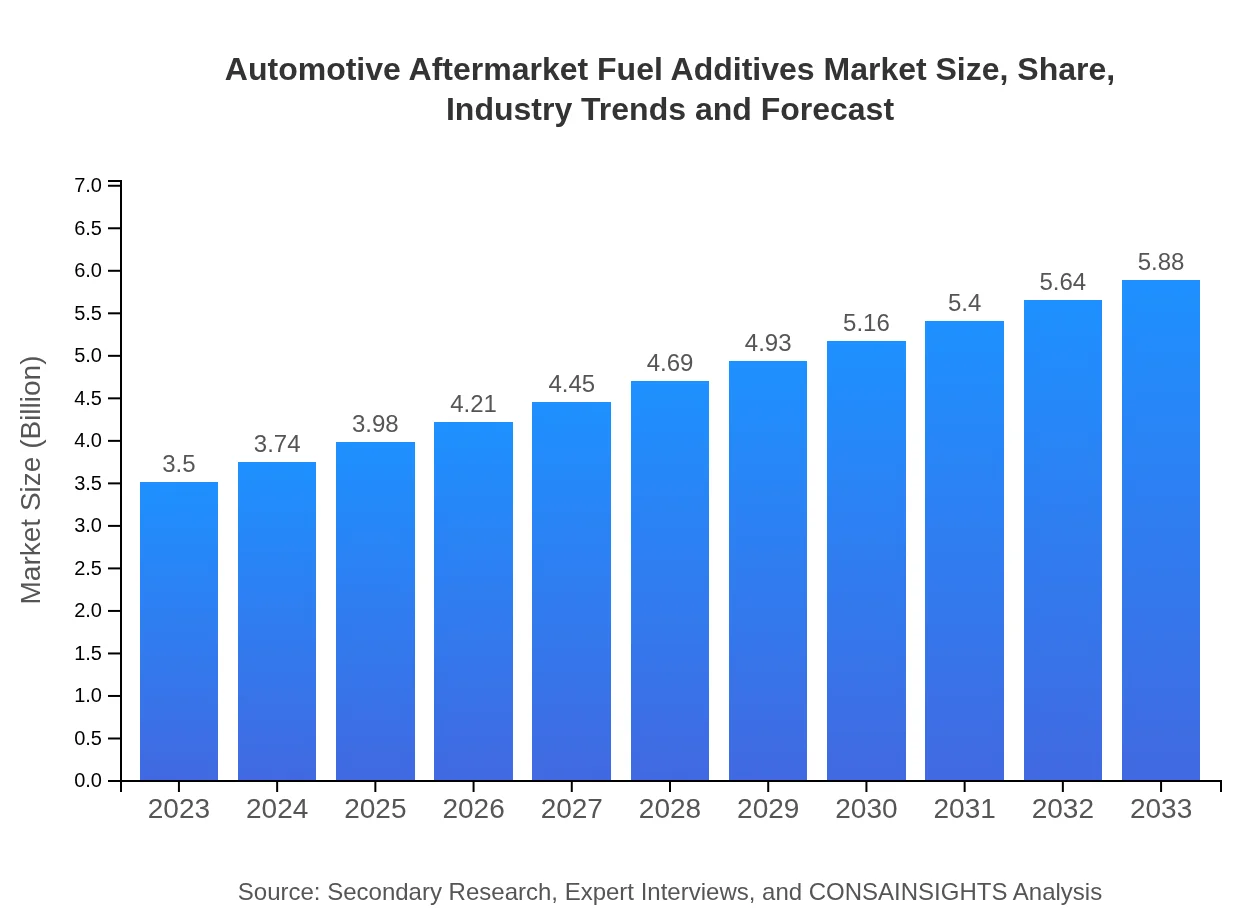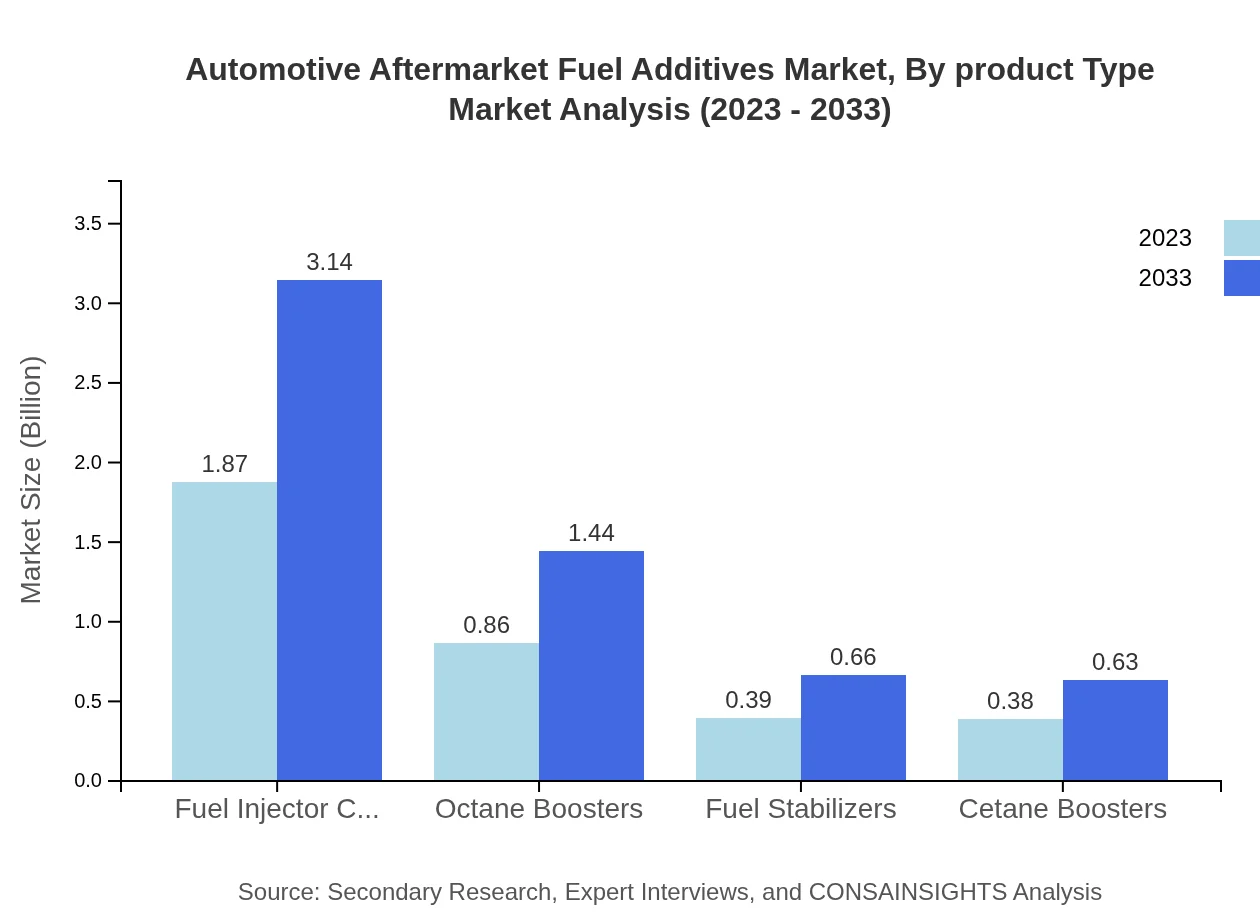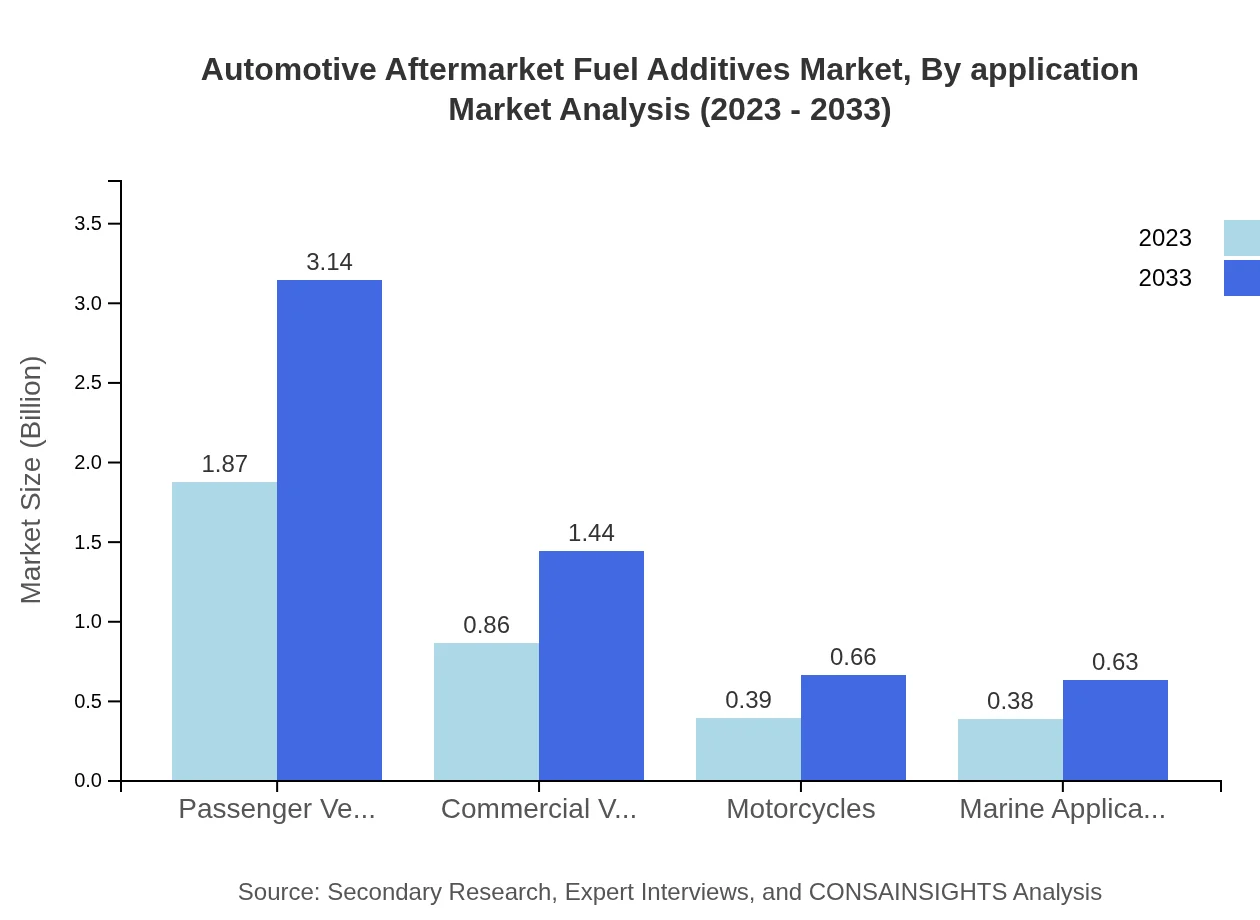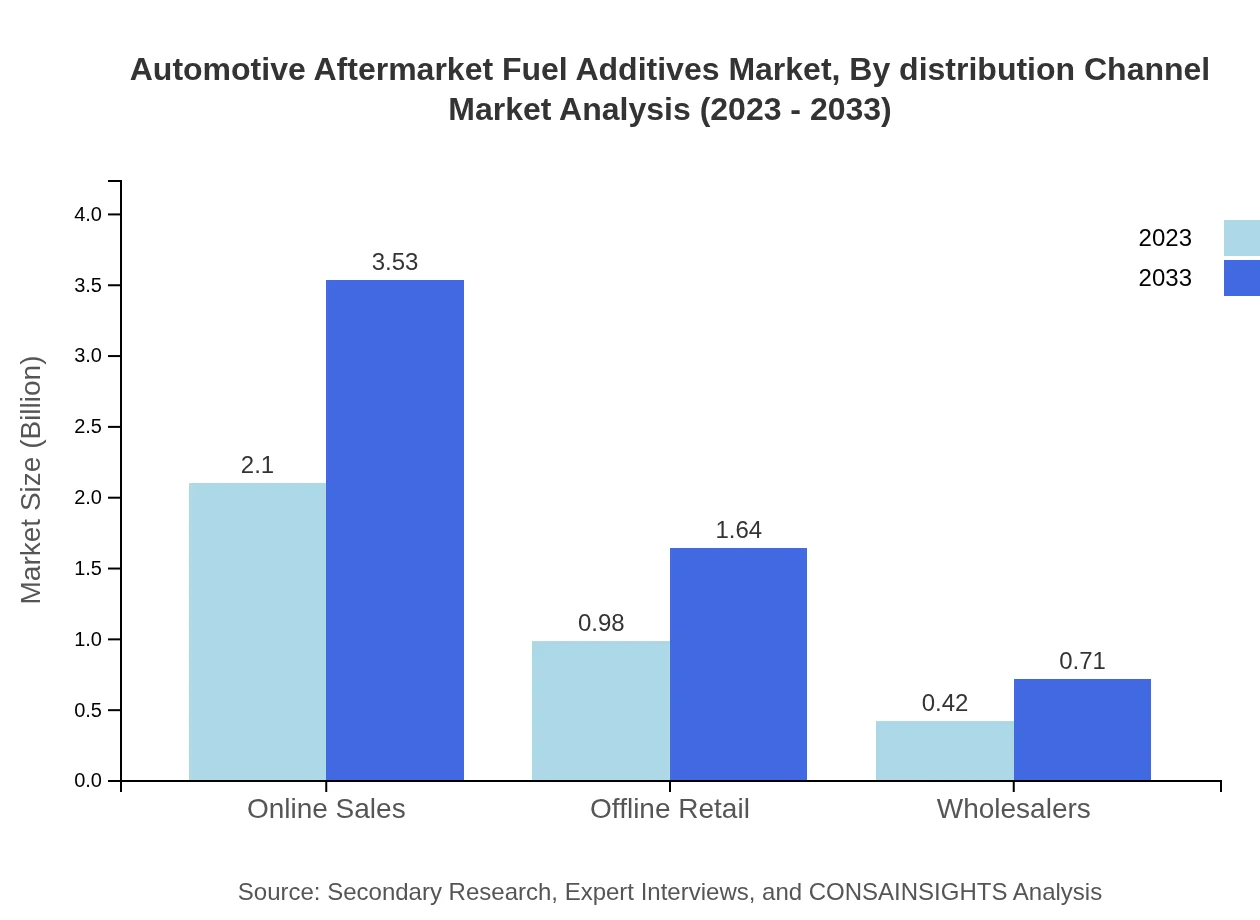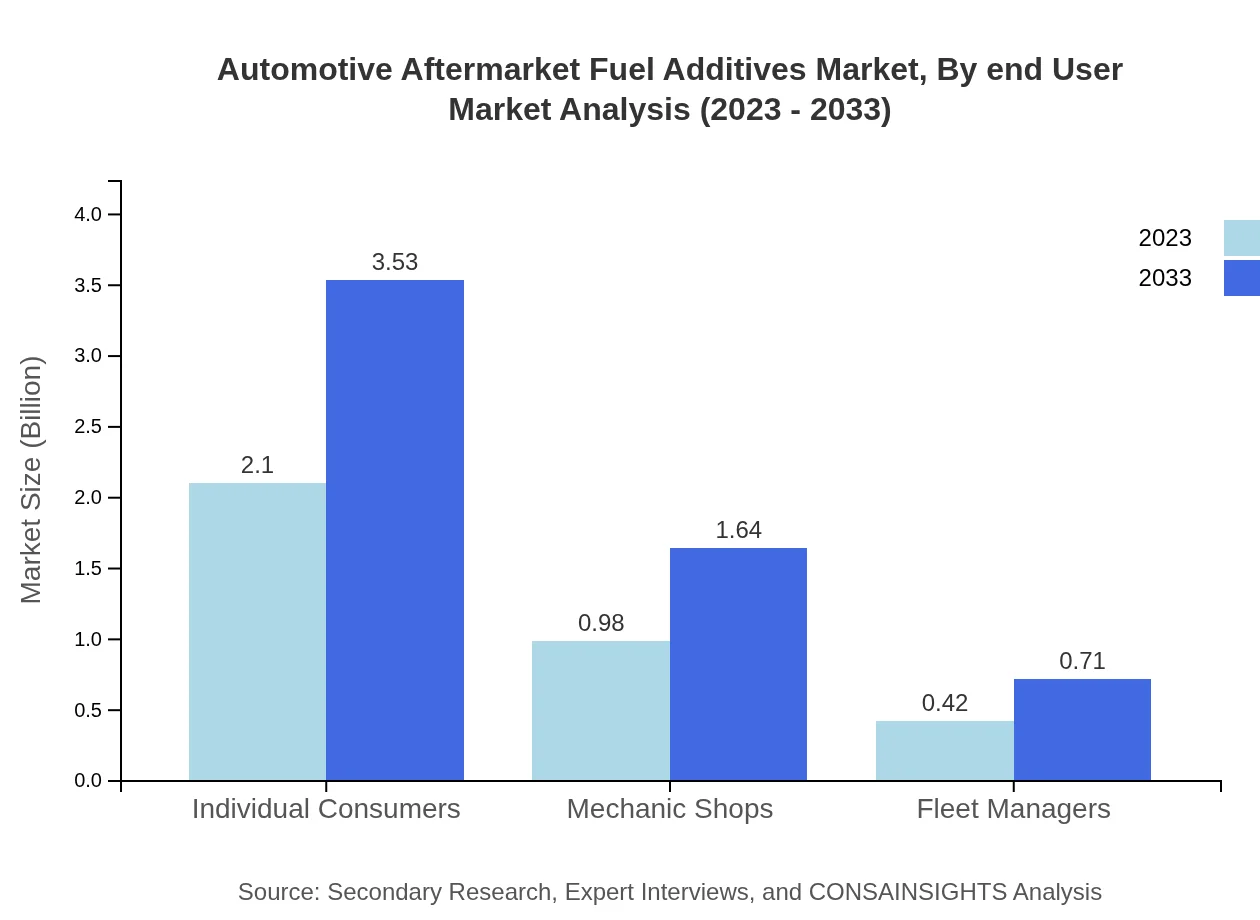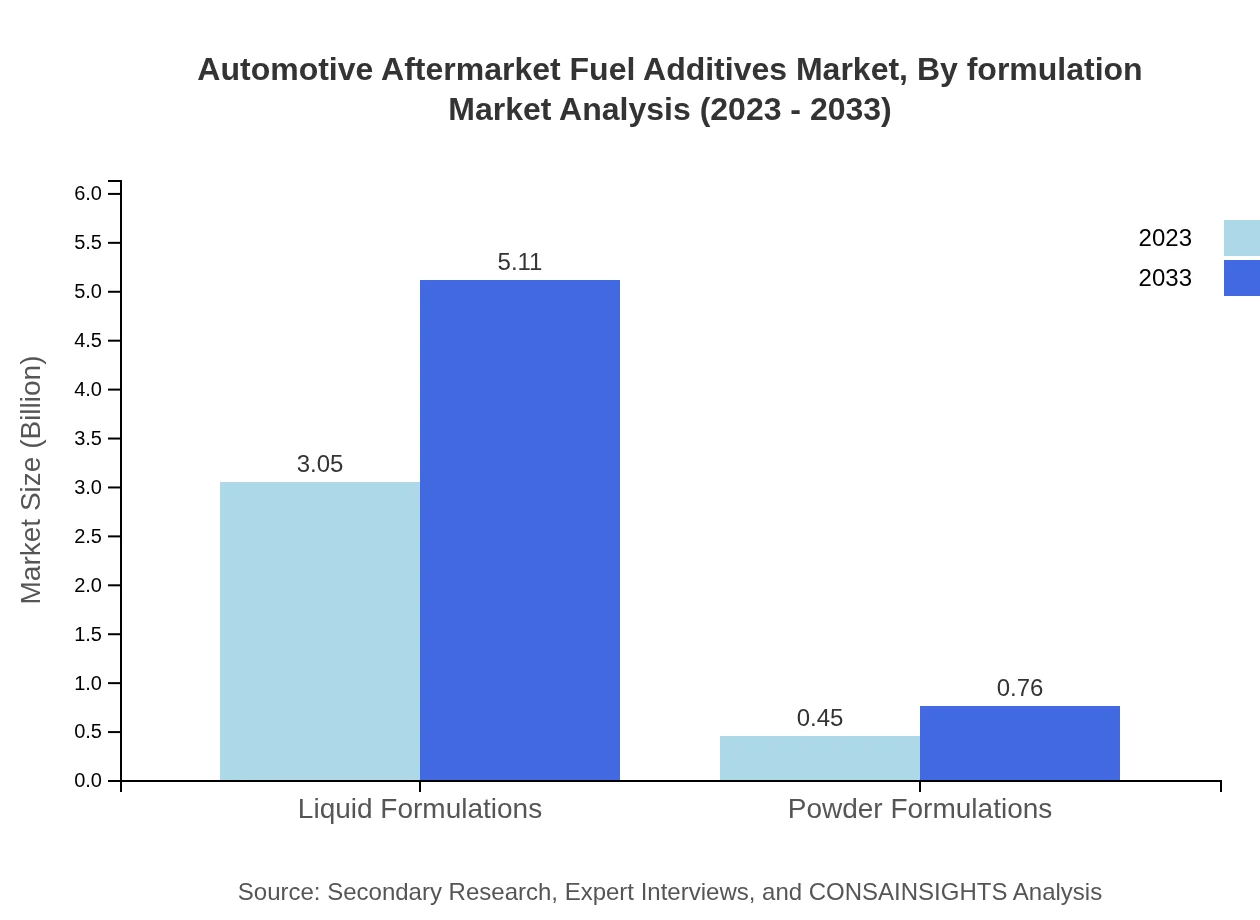Automotive Aftermarket Fuel Additives Market Report
Published Date: 22 January 2026 | Report Code: automotive-aftermarket-fuel-additives
Automotive Aftermarket Fuel Additives Market Size, Share, Industry Trends and Forecast to 2033
This report provides a comprehensive analysis of the Automotive Aftermarket Fuel Additives market from 2023 to 2033, offering insights on market size, trends, regional analyses, and key players shaping the industry.
| Metric | Value |
|---|---|
| Study Period | 2023 - 2033 |
| 2023 Market Size | $3.50 Billion |
| CAGR (2023-2033) | 5.2% |
| 2033 Market Size | $5.88 Billion |
| Top Companies | BASF, Chevron, Lucas Oil Products, BG Products, Royal Purple |
| Last Modified Date | 22 January 2026 |
Automotive Aftermarket Fuel Additives Market Overview
Customize Automotive Aftermarket Fuel Additives Market Report market research report
- ✔ Get in-depth analysis of Automotive Aftermarket Fuel Additives market size, growth, and forecasts.
- ✔ Understand Automotive Aftermarket Fuel Additives's regional dynamics and industry-specific trends.
- ✔ Identify potential applications, end-user demand, and growth segments in Automotive Aftermarket Fuel Additives
What is the Market Size & CAGR of Automotive Aftermarket Fuel Additives market in 2023?
Automotive Aftermarket Fuel Additives Industry Analysis
Automotive Aftermarket Fuel Additives Market Segmentation and Scope
Tell us your focus area and get a customized research report.
Automotive Aftermarket Fuel Additives Market Analysis Report by Region
Europe Automotive Aftermarket Fuel Additives Market Report:
Europe is projected to expand from $1.00 billion in 2023 to $1.68 billion in 2033, driven by stringent emission regulations and the increasing popularity of hybrid and electric vehicles, which often require specialized fuel additives for optimal performance.Asia Pacific Automotive Aftermarket Fuel Additives Market Report:
In the Asia Pacific region, the Automotive Aftermarket Fuel Additives market is experiencing robust growth, projected to reach $1.29 billion by 2033, up from $0.77 billion in 2023. Increased vehicle production, coupled with rising consumer disposable income, drives demand for high-quality fuel additives. Countries like China and India are pivotal to this expansion as they continue to invest in automotive sectors.North America Automotive Aftermarket Fuel Additives Market Report:
North America holds a significant share of the Automotive Aftermarket Fuel Additives market, with estimates of $1.12 billion in 2023 rising to $1.89 billion by 2033. The prevalence of well-established retail channels and a strong emphasis on vehicle maintenance contribute to this notable growth.South America Automotive Aftermarket Fuel Additives Market Report:
The South American market for Automotive Aftermarket Fuel Additives is expected to grow from $0.35 billion in 2023 to $0.58 billion by 2033. This growth is largely attributed to the increasing adoption of gasoline and diesel fuel additives that enhance vehicle performance amidst fluctuating fuel prices.Middle East & Africa Automotive Aftermarket Fuel Additives Market Report:
The Middle East and Africa region's Automotive Aftermarket Fuel Additives market is forecasted to increase from $0.26 billion in 2023 to $0.43 billion in 2033, as the automotive sector continues to develop, particularly in emerging economies.Tell us your focus area and get a customized research report.
Automotive Aftermarket Fuel Additives Market Analysis By Product Type
The Automotive Aftermarket Fuel Additives market by product type includes various offerings such as fuel injector cleaners, octane boosters, and cetane boosters. The liquid formulations are dominant, accounting for 87.04% market share in 2023 and projected to grow to 87.04% in 2033. This segment's performance highlights the increasing consumer preference for effective maintenance solutions. Powder formulations also contribute to the market, accounting for increased use in specific automotive applications.
Automotive Aftermarket Fuel Additives Market Analysis By Application
In terms of application, the automotive aftermarket fuel additives serve both passenger and commercial vehicles. The passenger vehicle segment is significant, contributing to 53.42% of the market in 2023, with expected growth to 53.42% by 2033. This indicates a consistent consumer focus on personal vehicle performance and maintenance.
Automotive Aftermarket Fuel Additives Market Analysis By Distribution Channel
The market distribution channels are primarily divided into online and offline sales. Online sales accounted for a significant 60.07% share in 2023, expected to maintain the same share through 2033 due to the rising trend of online shopping. Offline retail channels, while substantial, are showing steady but slower growth in comparison.
Automotive Aftermarket Fuel Additives Market Analysis By End User
The end-user segment consists of individual consumers, mechanic shops, and fleet managers. Individual consumers lead the market with a substantial 60.07% share in 2023. Mechanic shops and fleet managers also play crucial roles, accounting for 27.87% and 12.06% shares, respectively, indicating diverse end-user needs.
Automotive Aftermarket Fuel Additives Market Analysis By Formulation
Market segmentation by formulation shows a strong preference for liquid formulations (87.04% share in 2023). This dominance highlights their effectiveness in enhancing fuel performance, whereas powder formulations, contributing 12.96%, serve specific niches within the automotive sector.
Automotive Aftermarket Fuel Additives Market Trends and Future Forecast
Tell us your focus area and get a customized research report.
Global Market Leaders and Top Companies in Automotive Aftermarket Fuel Additives Industry
BASF:
A global leader in chemical manufacturing, BASF produces a wide range of additives that enhance fuel performance and reduce emissions.Chevron:
Chevron is known for its high-quality fuel products and additives, ensuring optimal vehicle performance and compliance with global emission standards.Lucas Oil Products:
Specializes in lubricants and fuel additives, Lucas Oil Products is renowned for its innovative formulations that improve engine efficiency.BG Products:
BG Products offers specialized automotive maintenance products, including a range of fuel additives that protect and improve engine performance.Royal Purple:
Recognized for premium lubricants and fuel additives, Royal Purple focuses on enhancing the performance and lifespan of vehicles.We're grateful to work with incredible clients.









FAQs
What is the market size of automotive Aftermarket Fuel Additives?
The automotive aftermarket fuel additives market is valued at approximately $3.5 billion in 2023, projected to grow at a CAGR of 5.2%, indicating a strong upward trend towards 2033, consolidating its significance in the automotive industry.
What are the key market players or companies in the automotive Aftermarket Fuel Additives industry?
The key players in this industry include major automotive chemical manufacturers and specialty fuel additive companies, with significant contributions from both established firms and emerging players focusing on innovative solutions for fuel efficiency and performance improvement.
What are the primary factors driving the growth in the automotive Aftermarket Fuel Additives industry?
Key drivers for growth include rising vehicle ownership, increasing demand for fuel efficiency, environmental regulations promoting clean fuels, and advancing technology in fuel treatment, which collectively bolster market demand for effective additives.
Which region is the fastest Growing in the automotive Aftermarket Fuel Additives?
The Asia Pacific region is the fastest growing, expected to grow from $0.77 billion in 2023 to $1.29 billion by 2033, driven by rising automotive production and consumer demand for enhanced vehicle performance across major automotive markets.
Does ConsaInsights provide customized market report data for the automotive Aftermarket Fuel Additives industry?
Yes, ConsaInsights offers customized market report data tailored to client needs, allowing businesses to gain deeper insights and forecasts specific to their focus areas within the automotive aftermarket fuel additives sector.
What deliverables can I expect from this automotive Aftermarket Fuel Additives market research project?
Deliverables typically include comprehensive market analysis reports, detailed segmentation insights, consumer behavior data, competitive landscape reviews, and tailored recommendations to support strategic planning and investment decisions.
What are the market trends of automotive Aftermarket Fuel Additives?
Current market trends include a shift towards eco-friendly additives, growth in online sales channels, and increasing consumer awareness regarding fuel efficiency, which are shaping the strategic direction of manufacturers in this rapidly evolving sector.

